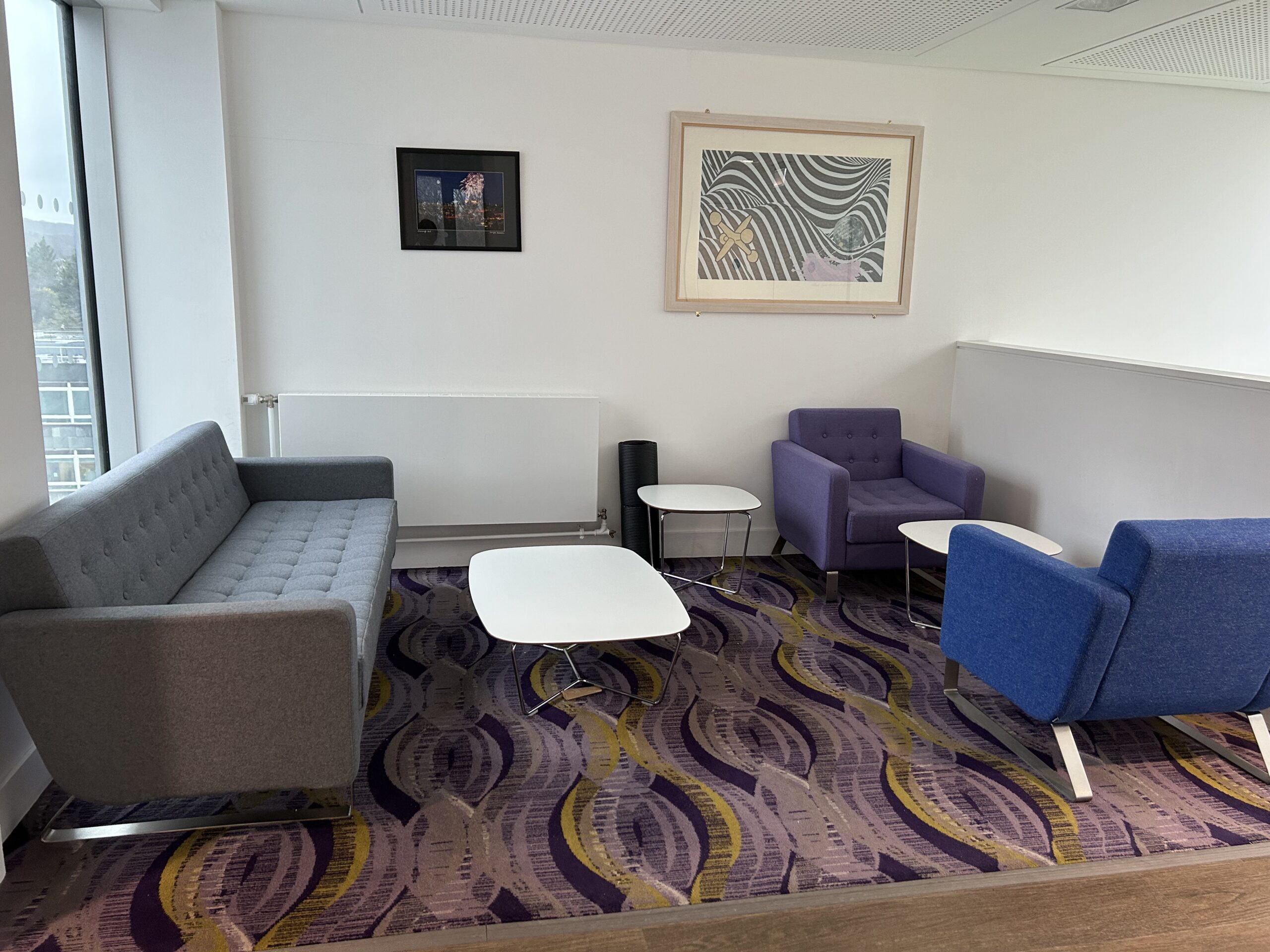Newly identified gain-of-function MDA5 mutation results in Aicardi-Goutières syndrome

Above: Comfy sofas for scientific discussions
In September 2023, I began my 4-year MRC Human Genetics Unit (HGU) PhD journey at the Institute of Genetics and Cancer (IGC) in Edinburgh. Despite consistently nearly being blown away by the wind, I shall still head to the IGC for my experiments and PhD training.

Here is the afternoon sunlight near the seminar room where we do biweekly journal clubs
I am mostly a wet lab person and is interested in the research of genetic diseases, so both of my two lab rotations for the first six months are in the disease mechanisms section of the HGU (Crow Lab, Jackson Lab). For ten weeks, I worked on the research of a rare mendelian disease, Aicardi-Goutières Syndrome (AGS) in Professor Yanick Crow’s lab, and the results are now submitted for review.
AGS is a rare neurological disease that associates with a high interferon-stimulated genes signature, causing autoinflammation that targets the patient’s brain. Gain-of-function (GOF) MDA5, a cytosolic foreign double-stranded RNA sensor, had been reported to result in upregulation of type 1 interferon signalling that lead to the development of AGS (Rice et al., 2014). In my first rotation, I worked with Dr. Carolina Uggenti (Crow lab) to investigate a de novo in-frame MDA5 deletion mutation. While, all previously identified AGS-causing GOF MDA5 were originated from missense substitution mutations (Rice et al., 2020), which makes this case very unique. Yanick was at first hesitant to declare it a disease-causing mutation, and thought the AGS-like symptoms might be initiated from elsewhere, it is uncommon to have a GOF protein resulted from an in-frame
deletion mutation.
Eventually, we were able to conclude the putative MDA5 mutant is highly likely the cause of the symptoms by performing an in-vitro investigation, along with the clinicians to help to assess the clinical phenotypes and patient care. Referring to Yanick and Carolina, the patient’s family are delighted to hear from us about our study and are glad that we would like to examine the case. Also, Dr. Lukas Gerasimavicius (Professor Joe Marsh’s lab) helped with the modelling of the MDA5 mutant to illustrate how the change in protein structure might be leading to the disease.
There are often collaborations among the wet lab and dry lab based groups at the IGC, working together with clinicians and patients for a comprehensive analysis. For the Crow lab, AGS patients are referred to Yanick, and further assessment will be performed.
With a more in-depth understanding of how genetic mutations would lead to the development of diseases, the correct diagnosis and the associated treatment could then be implemented accordingly. Especially for the rare diseases like the AGS, our research at the IGC would be beneficial to both the patients and the collective understanding of human genetics.
And now, I shall head back to conduct my data analysis for my second lab rotation project.



